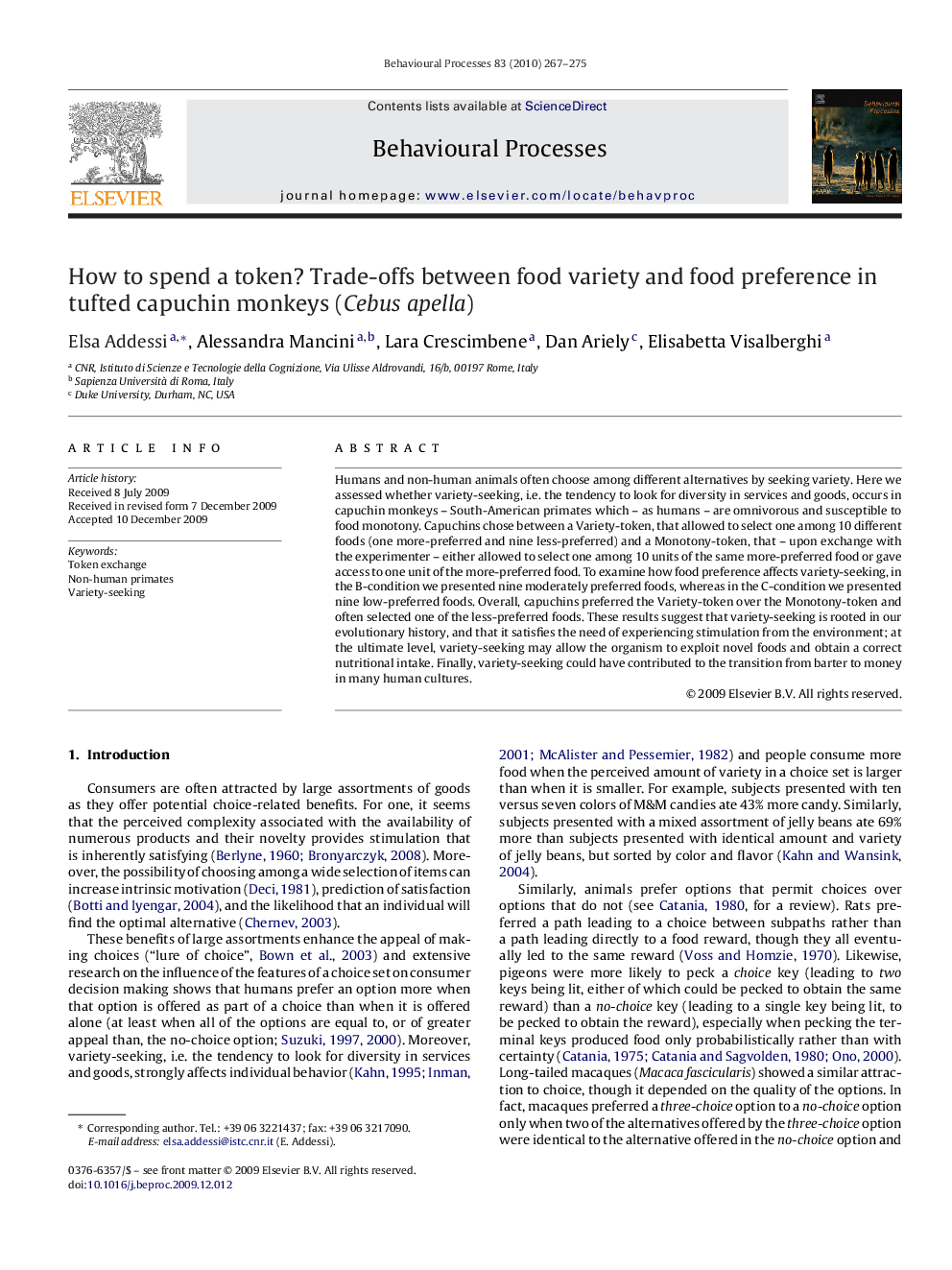| Article ID | Journal | Published Year | Pages | File Type |
|---|---|---|---|---|
| 2427219 | Behavioural Processes | 2010 | 9 Pages |
Humans and non-human animals often choose among different alternatives by seeking variety. Here we assessed whether variety-seeking, i.e. the tendency to look for diversity in services and goods, occurs in capuchin monkeys – South-American primates which – as humans – are omnivorous and susceptible to food monotony. Capuchins chose between a Variety-token, that allowed to select one among 10 different foods (one more-preferred and nine less-preferred) and a Monotony-token, that – upon exchange with the experimenter – either allowed to select one among 10 units of the same more-preferred food or gave access to one unit of the more-preferred food. To examine how food preference affects variety-seeking, in the B-condition we presented nine moderately preferred foods, whereas in the C-condition we presented nine low-preferred foods. Overall, capuchins preferred the Variety-token over the Monotony-token and often selected one of the less-preferred foods. These results suggest that variety-seeking is rooted in our evolutionary history, and that it satisfies the need of experiencing stimulation from the environment; at the ultimate level, variety-seeking may allow the organism to exploit novel foods and obtain a correct nutritional intake. Finally, variety-seeking could have contributed to the transition from barter to money in many human cultures.
